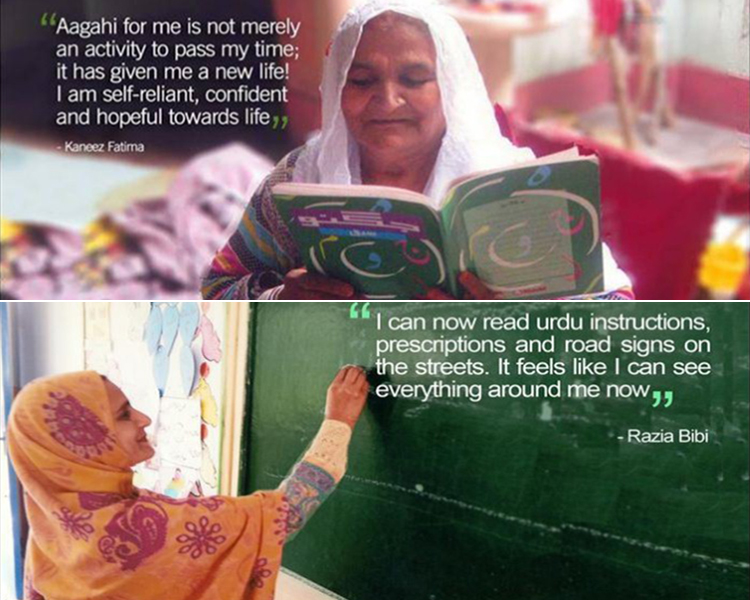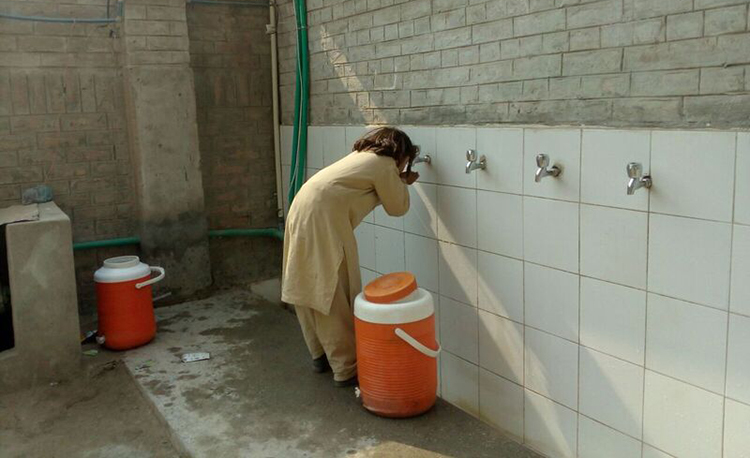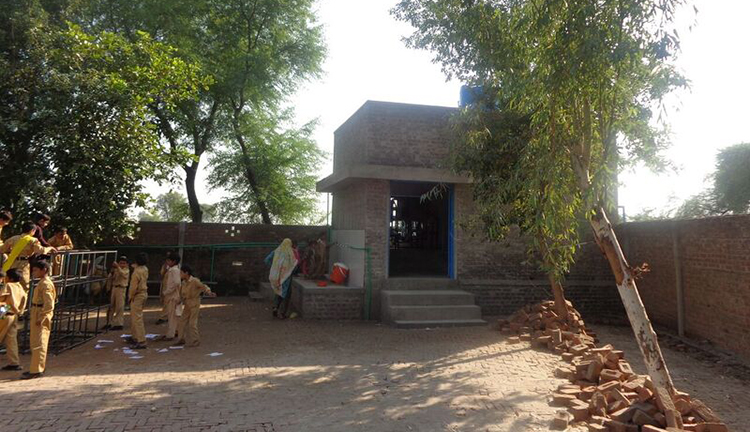Written by: Nageen Shaikh
Posted on: April 11, 2016 | 
Aagahi - class in progress
The Citizens Foundation – internationally recognized by Schwab Foundation and a recipient of the prestigious Ramon Magsaysay Award – is one of Asia’s largest not-for-profit, donation and volunteer-based organizations, which has built over 1,060 school units in more than 100 of the poorest cities and towns all over the country. TCF schools offer quality education from the primary level to grade tenth in areas deprived of basic education. With current student enrolment at over 165,000, an all-female faculty of 9,500, and alumni strength exceeding 12,500, it is quite astounding that the organization runs solely on charity and enthusiastic volunteers. The impact of Community Development Projects such as Aagahi and the Clean Drinking Water Initiative has been tremendous, with a substantial number of adult women learning to read and write and the installation of water filters in underprivileged parts of the country.

With Pakistan’s literacy rate at a dismal 56%, more than half the women in the country have not seen the inside of a school. At the end of the last decade, the literacy rate for adult females stood at 40% (Literacy rate - adult female (% of females ages 15 and above) in Pakistan, 2016). This fact reiterates the dire need to facilitate education for the female population, both child and adult. TCF initiated Aagahi in 2005 as an Urdu adult literacy initiative for the uneducated family members of its enrolled students. The aim is to inculcate basic reading and writing skills, so that adult women are able to form simple sentences, read newspapers and prescriptions, pay the bills, and perform basic calculations. “My own mother is an Aagahi student, and often times I have to work extra hard and hold her hand to instruct her on writing”, says Mafiya, an Aagahi teacher. “It is quite a rewarding experience when she is able to master new words”.
TCF’s curriculum partner – the Literate Pakistan Foundation – provides content, material and teacher training, as TCF executes the program in disadvantaged areas. The Aagahi Centers see a two-hour daily commitment during a phase of three months. Two phases are carried out annually. The impact has been substantial, with 2,864 total learning centers formed by TCF, and a total of 42,864 learners by the end of 2015. The target areas stretch as far as Vinder, Lasbella, Samundari, Gujranwala, Pai Khel, Kalabagh and Kasur.

More than 44% of the country’s population does not have access to clean drinking water – this is the cause of more than 40,000 child deaths annually in the country (More Than 40 Per Cent Pakistanis Lack Access To Clean Water, 2011). This fact alone screams out the dire need for clean water resources all over Pakistan. The Clean Drinking Water Initiative by TCF sees the installation of water plants in areas where potable water is hard to come by. Through grants and funds, water plants running up to eight hours a day are installed and monitored all year round. The aim is to make clean water available to the locals in order to mitigate diseases, which also results in increased student attendance in the schools. “Ever since we started using TCF’s filters, we’ve been able to avoid various diseases”, says Nighat from Green Town, Lahore.
The availability of clean water and its efficient utilization are two major challenges faced by the Community Development Team that oversees the project. However, the target of setting up 10 water plants for 2015-2016 has already seen the installation of 5 of these. The impact has been highly encouraging. “The water from these plants is clean and sweet, and near our village homes. Before this, we used to carry the pots from far away and walk on foot. This filter is a great facility for us”, says Imtiaz Bibi, a resident of Shahpur in Sargodha.

While independent organizations and individuals are working tirelessly to mitigate illiteracy and improve hygiene conditions in certain areas of the country, it remains an enormous challenge to tackle it on a scale that would make basic facilities such as clean water and education readily available to the masses. How we take these concerns in our hands and strive to create an impact is indeed a task that needs more attention from every well-to-do citizen of the country.
All images have been provided by the Community Development Unit at TCF.
Literacy rate - adult female (% of females ages 15 and above) in Pakistan. (2016). Retrieved from Trading Economics: http://www.tradingeconomics.com/pakistan/literacy-rate-adult-female-percent-of-females-ages-15-and-above-wb-data.html
More Than 40 Per Cent Pakistanis Lack Access To Clean Water. (2011). Retrieved from Dawn: Originally published by Pakistan Council of Research in Water Resources
You may also like: